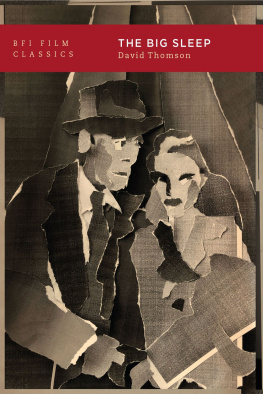Eric Thomson - Like Stars in Heaven
Here you can read online Eric Thomson - Like Stars in Heaven full text of the book (entire story) in english for free. Download pdf and epub, get meaning, cover and reviews about this ebook. year: 0, genre: Art / Science fiction. Description of the work, (preface) as well as reviews are available. Best literature library LitArk.com created for fans of good reading and offers a wide selection of genres:
Romance novel
Science fiction
Adventure
Detective
Science
History
Home and family
Prose
Art
Politics
Computer
Non-fiction
Religion
Business
Children
Humor
Choose a favorite category and find really read worthwhile books. Enjoy immersion in the world of imagination, feel the emotions of the characters or learn something new for yourself, make an fascinating discovery.

- Book:Like Stars in Heaven
- Author:
- Genre:
- Year:0
- Rating:5 / 5
- Favourites:Add to favourites
- Your mark:
- 100
- 1
- 2
- 3
- 4
- 5
Like Stars in Heaven: summary, description and annotation
We offer to read an annotation, description, summary or preface (depends on what the author of the book "Like Stars in Heaven" wrote himself). If you haven't found the necessary information about the book — write in the comments, we will try to find it.
Like Stars in Heaven — read online for free the complete book (whole text) full work
Below is the text of the book, divided by pages. System saving the place of the last page read, allows you to conveniently read the book "Like Stars in Heaven" online for free, without having to search again every time where you left off. Put a bookmark, and you can go to the page where you finished reading at any time.
Font size:
Interval:
Bookmark:
LIKE STARS
IN
HEAVEN
Siobhan Dunmoore Book 3

ERIC THOMSON
Like Stars in Heaven
Copyright 2016 Eric Thomson
Published by Sanddiver Books
All rights reserved.
This is a work of fiction. Names, characters, places and incidents either are the product of the author's imagination or are used fictitiously, and any resemblance to actual persons, living or dead, business establishments, events or locales is entirely coincidental.
Published in Canada
ISBN: 978-0-9948200-6-8
TABLE OF CONTENTS
War, now entering its seventh year, still raged across the stars. Humans and Shrehari kept dying as their admirals and generals struggled to find a weakness, a lever, anything that could break the stalemate.
The log buoy, a large, torpedo-shaped, unmanned spacecraft, did not care about the conflagration that had claimed so many lives already. Nothing actually concerned it. It had long since lost what little machine consciousness it might have had.
Centuries spent hurtling through interstellar space had completely drained its energy reserves, and its trajectory had not come close enough to any stars that might have helped recharge them.
Carrying the final message from colonists who had landed on a distant world after a long voyage, it had been aimed at what they guessed was the general direction of their home system. They had programmed the buoy to accelerate to a very high fraction of the speed of light over the course of many years before coasting to its destination.
The colonists did not believe that anyone would ever read the message it carried, let alone act on it, but since the buoy had one function and one only, it had cost nothing to launch it.
And so it sped on, for much longer than the brief centuries during which humanity had progressed from the first artificial satellite to a Commonwealth spanning more than fifty star systems, and now battling another sentient, space-faring empire.
It would have kept going until some natural phenomenon destroyed it, or until the universe eventually died. The course it followed would not have come close to its intended destination, but it would eventually enter human-controlled space and not that of the Commonwealths deadly enemy.
The buoy did not notice. It had not noticed anything for a long, long time.
Even if the impossible happened and it reached the descendants of its makers, the craft would be unable to account for its voyage. Only the data etched into its memory circuits by those who launched it remained.
The buoy did not realize that had it slipped by a Shrehari patrol ship, unseen and undetected, years before the Empires feckless leadership planned a war while trade still crossed the nebulous boundary between the two future foes. Nor did it notice the abrupt end of a long peace followed by the plunge into killing on a galactic scale.
By then, it had reached the rim of human controlled space. From there, it would coast across the Commonwealth for several centuries, still undetected, before vanishing into the Coalsack Sector.
A scavenger, one with sensors more finely tuned than most, and blessed with a hefty dose of good luck, was looking for opportunity far from the fighting. In due course, it detected a mass of cold metal traveling at something approaching relativistic speeds.
Sailing along the far edges of the frontier and with little to show for the voyage so far, its captain decided to tackle the tricky process that would slow the object down sufficiently so they could recover it.
The operation failed, but had the buoys mind still been active, it would have noticed a distinct decrease in velocity.
A second try by the same ship a year later, after Nabhka and Cimmeria had fallen into Shrehari hands, reduced the little crafts speed even further. A third attempt, in the weeks before Siobhan Dunmoore, acting captain of the battleship Victoria Regina , made her last stand against Brakal, attracted the attention of a Navy survey cruiser, which took over from the scavenger.
It managed to bleed off the log buoys remaining velocity and, upon inspection, claimed it for the government.
Against all hope and indeed against all probability, the log buoy had made it home, bearing a final message from a colonization ship launched centuries earlier, during humanitys first exodus to the stars, and believed lost without a trace.
Unfortunately, with a war raging, no one cared that the buoys long voyage should have been impossible, that it defied humanitys understanding of space and time.
It almost seems unfair, Lieutenant-Commander Pushkin said, voice pitched low as he stared at the main screen.
Why is that? Siobhan Dunmoores lips twisted with amusement at her first officers comment.
I feel like a schoolyard bully about to give the smallest kid in class a thorough thrashing.
Would you rather feel like the smallest kid in class watching the bully come straight at you?
Of course not. I just seem to have had a brief moment of chivalry creep up on me for some reason.
Fairness in war? She snorted. Please. If youre in a fair fight, youve screwed up somewhere along the way. Besides, were not responsible for them having crappy sensor gear. Were not responsible for the war. Moreover, were definitely not responsible for this one coming to snoop in a system we just happen to be picketing this week. The captain of that Shrehari corvette chose poorly.
Shall we offer them the chance to surrender?
How many prisoners of war do we hold, Gregor?
None, he grudgingly admitted. Or at least none the Admiralty will admit to.
Dunmoore nodded.
Correct. Guns, how long until the enemy is in range?
Another five minutes for an optimal missile solution. Lieutenant Syten replied.
I cant believe they havent seen our maneuvering thrusters, Chief Guthren commented from his helm station. The coxswain, or Chief of the Ship, had taken the controls from the quartermaster of the watch the moment Dunmoore had called battle stations.
Though the ship was running silent, either all systems shut down or dampened to imitate the radiation signature of a mere asteroid, she had risked using thrusters to put them on a converging track with the badly shielded Shrehari corvette.
The enemy ship had attempted a covert run into the Alpha Cephei system, hoping to raid some of the mining colonies scattered among the moons of Amun, a massive gas giant. Unfortunately, even dampened, it leaked emissions to such an extent that it could not remain hidden from Stingray s more advanced sensors, especially not when those were under the keen eyes of Petty Officer Third Class Banger Rownes, gunners mate and fast becoming one of the best sensor techs on board.
Probably blinded by their own reactors, the grey-haired petty officer remarked. If theyre on passive, as they should be, wed have to light up like a Founders Day party to register.
True, Guthren nodded. Mister Pushkin is right; it does seem a tad unsporting, but when it comes to the boneheaded bastards, Ill take any advantage without guilt, even if it feels like Im beating up on a scrawny kid.
Lieutenant Kowalski, sitting at the signals station, snorted loudly.
I fail to see how the Shrehari could be characterized as scrawny, coxn. Their smallest look to be about your size, and youre not exactly tiny among humans.
Okay then, he conceded, its more like the smart kid in class asking the village idiot to calculate the square root of infinity.
Alright, alright, Dunmoore cut-off the banter with hands raised in surrender. If she let it go on, Pushkin would jump in and when he and the coxswain got going, they did not stop until they had thoroughly derailed the discussion.
Font size:
Interval:
Bookmark:
Similar books «Like Stars in Heaven»
Look at similar books to Like Stars in Heaven. We have selected literature similar in name and meaning in the hope of providing readers with more options to find new, interesting, not yet read works.
Discussion, reviews of the book Like Stars in Heaven and just readers' own opinions. Leave your comments, write what you think about the work, its meaning or the main characters. Specify what exactly you liked and what you didn't like, and why you think so.












